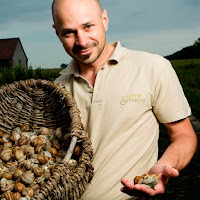
Tony Giles has
visited all the world’s continents independently. The remarkable story of how Tony Giles travels around the world
alone, despite being blind since birth. I
got the travel bug from stories my dad told me about his trips with the
Merchant Navy. Then one of my friends from school started to go to gigs and
stay in hostels overnight, so I began to go with him. My first trip was to
Norwich of all places. I knew travelling
as a blind person wouldn’t always be easy, but I was brought up with the
attitude to be positive. Once my mum got her head around the fact that she
had a disabled son, she wanted to give me as much independence as possible. My travel I breakthrough came when I went
to study at a university in South Carolina. My friends arranged to go to
Florida after term finished. Mickey Mouse isn’t really my thing, so I decided
to New Orleans on my own instead. Lots of people warned me that it was a
dangerous city – but I was determined. It was
in New Orleans that I became aware of the immensity of what I was doing. I
got information from the hostel about the direction of the tram-stop I needed
for Bourbon Street. I walked out of the hostel, and just froze. My whole body
shook with panic. But I said to myself, ‘This is what you wanted. If you don’t
want it, go home.’ I took a deep breath, turned left, walked down the street
and never looked back. My biggest problem is money. In England, the notes are
different sizes, but in the States, they’re the same. I know that if I get $100
from the bank, it’s usually five $20s. as long as I remember what I’ve spent,
I’m OK. I’ve been short changed in the past – that’s just part of travelling. Being blind does mean that I appreciate
different things. Obviously, I’m not looking at the sunset or the beautiful
colours of the flowers. I appreciate things through my feet instead, like when
I’m walking up a mountain, or through my skin, if I’m walking through jungle,
or through my hearing. I can detect changes in temperature and
space. I’m very aware of energy in my surroundings. If I’m walking along a
path and come into an open field, I can detect that the energy has changed and
a space has opened up. It’s the same if I’m walking through a forest, I can
tell that the air has become squeezed, and that the space is a lot thinner.
Different cities smell differently. Bangkok has a dirty smell of
fumes mixed with incense. That’s my vision of a country: the sounds and the
smell. So places like Istanbul or Bangkok are great if you’re visually
impaired. I have to rely on the help of
strangers while travelling. People in Turkey were particularly helpful:
they’d help me back to the hostel or start up a conversation. Big cities in
America are difficult, and I found Morocco quite aggressive. Sometimes the
language barrier can make places feel more unfriendly than they are. Being blind can break down barriers,
especially with women – they like the fact I’m not looking at them as sexual
objects. Plus, I’m confident and willing to joke about my blindness, which
helps once people have got over the shock of seeing a blind person travelling
on their own. I almost always travel on my own. I like the challenge. I have
started to travel with my girlfriend, who’s blind too. It’s great, but does
cause problems-I’m more protective. If I walk into things, I’m not bothered, I
just bounce off them. When she walks into things, I have a heart attack!
Tony’s travels
have taken in New Orleans’ trams, the feel of a $20 note, the energy of a
forest, the scents of Bangkok, and the kindness of strangers in Turkey.





